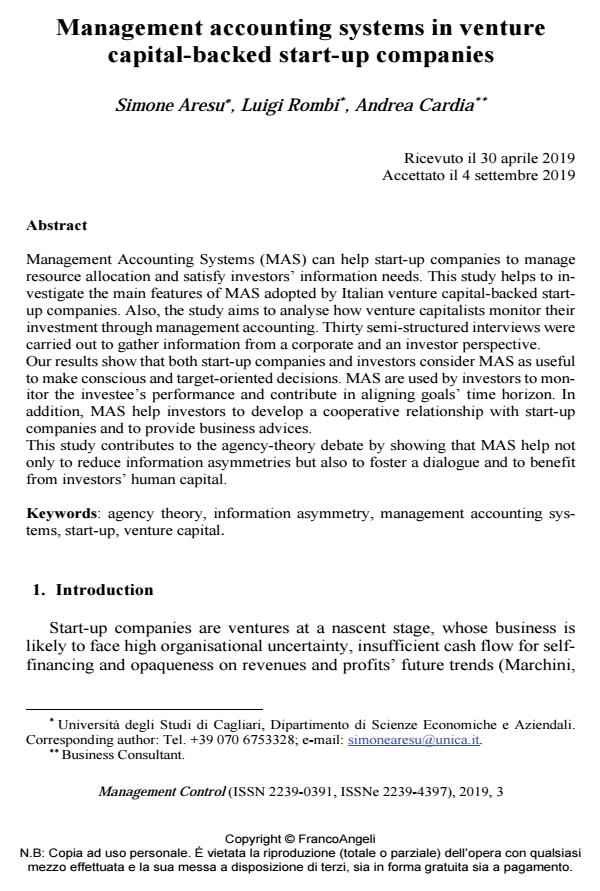Management accounting systems in venture capital-backed start-up companies
Journal title MANAGEMENT CONTROL
Author/s Simone Aresu, Luigi Rombi, Andrea Cardia
Publishing Year 2019 Issue 2019/3
Language English Pages 24 P. 35-58 File size 294 KB
DOI 10.3280/MACO2019-003003
DOI is like a bar code for intellectual property: to have more infomation
click here
Below, you can see the article first page
If you want to buy this article in PDF format, you can do it, following the instructions to buy download credits

FrancoAngeli is member of Publishers International Linking Association, Inc (PILA), a not-for-profit association which run the CrossRef service enabling links to and from online scholarly content.
Management Accounting Systems (MAS) can help start-up companies to manage resource allocation and satisfy investors’ information needs. This study helps to investigate the main features of MAS adopted by Italian venture capital-backed start-up companies. Also, the study aims to analyse how venture capitalists monitor their investment through management accounting. Thirty semi-structured interviews were carried out to gather information from a corporate and an investor perspective. Our results show that both start-up companies and investors consider MAS as useful to make conscious and target-oriented decisions. MAS are used by investors to monitor the investee’s performance and contribute in aligning goals’ time horizon. In addition, MAS help investors to develop a cooperative relationship with start-up companies and to provide business advices. This study contributes to the agency-theory debate by showing that MAS help not only to reduce information asymmetries but also to foster a dialogue and to benefit from investors’ human capital.
Keywords: Agency theory, information asymmetry, management accounting systems, start-up, venture capital
Simone Aresu, Luigi Rombi, Andrea Cardia, Management accounting systems in venture capital-backed start-up companies in "MANAGEMENT CONTROL" 3/2019, pp 35-58, DOI: 10.3280/MACO2019-003003